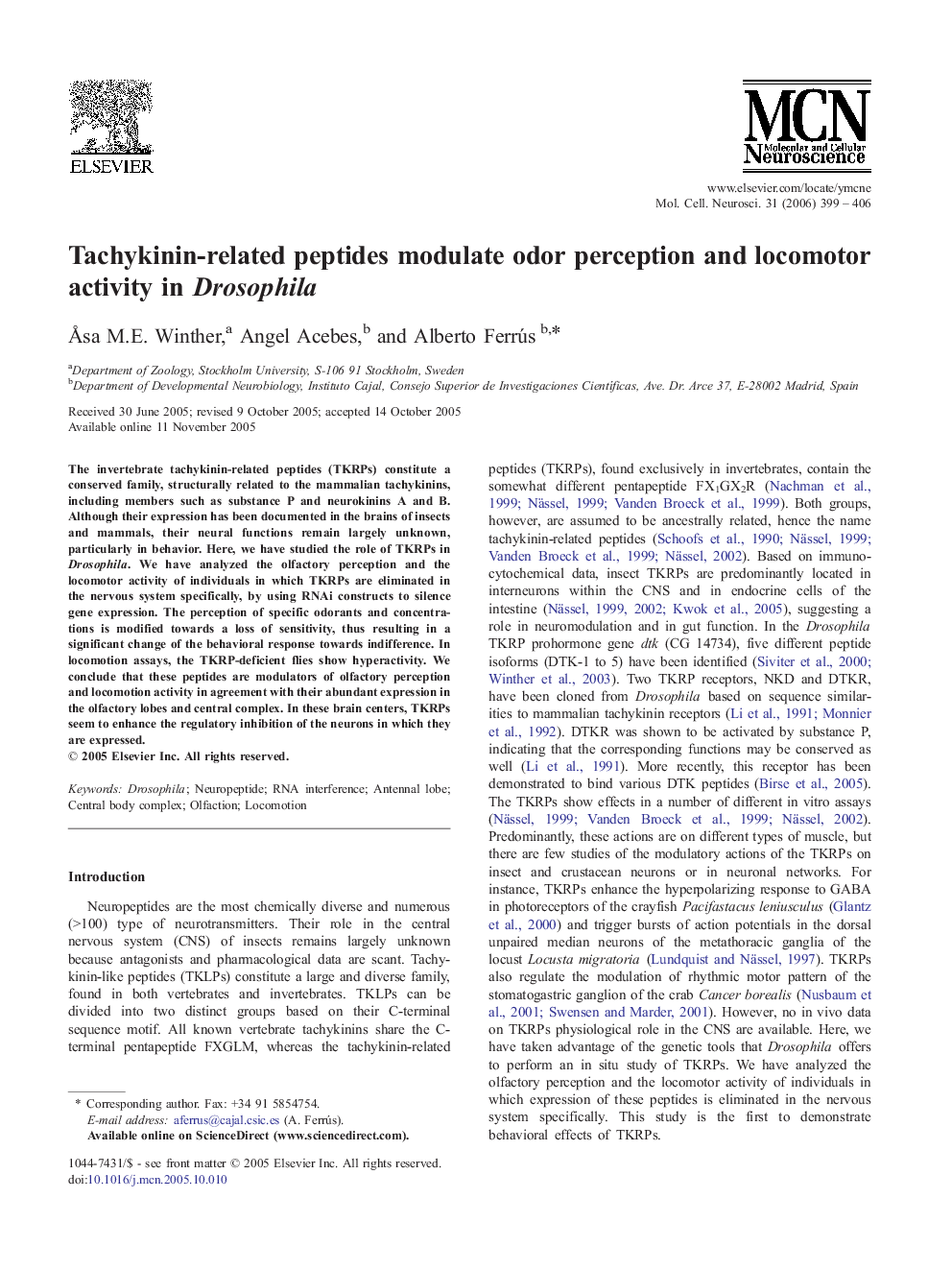| Article ID | Journal | Published Year | Pages | File Type |
|---|---|---|---|---|
| 2199374 | Molecular and Cellular Neuroscience | 2006 | 8 Pages |
The invertebrate tachykinin-related peptides (TKRPs) constitute a conserved family, structurally related to the mammalian tachykinins, including members such as substance P and neurokinins A and B. Although their expression has been documented in the brains of insects and mammals, their neural functions remain largely unknown, particularly in behavior. Here, we have studied the role of TKRPs in Drosophila. We have analyzed the olfactory perception and the locomotor activity of individuals in which TKRPs are eliminated in the nervous system specifically, by using RNAi constructs to silence gene expression. The perception of specific odorants and concentrations is modified towards a loss of sensitivity, thus resulting in a significant change of the behavioral response towards indifference. In locomotion assays, the TKRP-deficient flies show hyperactivity. We conclude that these peptides are modulators of olfactory perception and locomotion activity in agreement with their abundant expression in the olfactory lobes and central complex. In these brain centers, TKRPs seem to enhance the regulatory inhibition of the neurons in which they are expressed.
